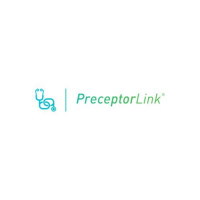The Essential Role of NP Clinical Preceptors: Shaping the Future of Advanced Practice Nursing

Strong 8k brings an ultra-HD IPTV experience to your living room and your pocket.
Nurse Practitioners (NPs) are integral to the evolving healthcare system, offering specialized care across diverse settings. As healthcare becomes more complex, the role of NP clinical preceptors has gained increasing importance. These experienced professionals not only provide guidance to nursing students but also shape the future of advanced practice nursing by passing on critical skills, knowledge, and values.
The Role of NP Clinical Preceptors
NP clinical preceptors are seasoned Nurse Practitioners who take on the responsibility of mentoring and guiding students or new graduates during their clinical training. Their role is multifaceted, involving both teaching and evaluating students in real-world healthcare environments. Clinical preceptors provide invaluable hands-on experience, allowing NPs-in-training to apply theoretical knowledge to patient care while under the supervision of experienced mentors.
These preceptors serve as role models for professionalism, clinical decision-making, and interpersonal communication. They help students refine their clinical reasoning skills, enhance their diagnostic abilities, and develop the confidence to independently care for patients. Beyond technical expertise, clinical preceptors instill the ethical values that are crucial for any healthcare provider, including patient-centered care, cultural competency, and collaborative practice.
The Impact on Student Development
The relationship between NP students and their clinical preceptors is one of the most influential factors in the development of future practitioners. A positive and supportive preceptorship can significantly enhance a student's clinical competence, critical thinking, and professional identity.
Skill Development: NP clinical preceptors play a key role in bridging the gap between classroom learning and clinical practice. Students gain hands-on experience in performing assessments, diagnosing conditions, developing treatment plans, and managing patient care. Preceptors offer immediate feedback, helping students refine their techniques and improve their clinical judgment in real time.
Confidence Building: The transition from student to independent practitioner can be daunting. Clinical preceptors provide a safety net during this process, offering guidance and reassurance. As students gain proficiency under the supervision of a preceptor, their confidence grows, and they become more adept at making independent clinical decisions.
Professionalism and Ethical Practice: NPs are expected to uphold high standards of professionalism and ethics in their practice. Clinical preceptors mentor students in maintaining patient confidentiality, exercising cultural sensitivity, and adhering to ethical principles in decision-making. This mentorship is essential in shaping well-rounded, competent, and compassionate NPs.
Clinical Judgment and Critical Thinking: Preceptors play a crucial role in fostering clinical judgment and critical thinking. They encourage students to think critically about patient cases, ask pertinent questions, and make evidence-based decisions. This mentorship helps students develop the skills needed to handle complex clinical scenarios with confidence and expertise.
Benefits of Clinical Preceptorship for Preceptors
While the primary focus of the preceptorship is on the student, NP clinical preceptors also benefit from this mentorship experience. The opportunity to teach and guide the next generation of NPs offers several advantages.
Professional Fulfillment: Mentoring students provides a sense of professional fulfillment. Preceptors contribute to the growth of the nursing profession and the development of future healthcare leaders. By shaping the skills and attitudes of new NPs, preceptors leave a lasting impact on the profession.
Strengthening Clinical Skills: Teaching others reinforces a preceptor's own clinical knowledge and skills. Explaining complex concepts, demonstrating clinical techniques, and discussing patient cases helps preceptors stay sharp and up-to-date on current practices. This mutual learning dynamic can help preceptors maintain and expand their clinical competencies.
Career Advancement: Being an effective preceptor is often recognized as a valuable leadership skill. It demonstrates a commitment to education and mentoring, which can enhance a preceptor's reputation in their professional community. Additionally, preceptorships may open doors to further academic opportunities, such as teaching roles or involvement in curriculum development.
Expanding Networks: Preceptors often have the chance to build professional relationships with a new generation of NPs. These relationships can extend beyond the clinical setting and become valuable professional networks that can enhance career opportunities, collaborations, and knowledge sharing.
The Broader Impact of NP Clinical Preceptors
NP clinical preceptors play a critical role in not only shaping individual practitioners but also influencing healthcare delivery on a larger scale. Well-prepared NPs contribute to a more efficient and effective healthcare system by delivering high-quality care, addressing provider shortages, and improving patient outcomes.
Enhancing Patient Care: When students receive high-quality clinical instruction, they are better equipped to provide excellent patient care once they become licensed practitioners. The experience of working with a knowledgeable preceptor allows students to refine their clinical skills, leading to improved patient outcomes. Preceptors who focus on evidence-based practices and patient-centered care ensure that students are well-versed in these essential aspects of modern healthcare.
Addressing Healthcare Provider Shortages: As the demand for healthcare services continues to grow, there is an increasing need for highly trained Nurse Practitioners. Clinical preceptors play a vital role in training and preparing NPs to enter the workforce, ultimately helping to alleviate provider shortages in primary care and specialty fields. Preceptorships ensure that NPs are well-equipped to meet the needs of patients across various settings.
Supporting Healthcare Innovation: NP clinical preceptors help foster a culture of continuous learning and innovation. By teaching students to think critically, analyze data, and apply evidence-based practices, preceptors contribute to the advancement of healthcare delivery. NPs trained by expert preceptors are more likely to adopt innovative approaches to care, which can lead to improved healthcare outcomes and increased patient satisfaction.
Challenges and Considerations for NP Clinical Preceptors
While the role of the NP clinical preceptor is rewarding, it is not without its challenges. Preceptors are tasked with balancing their clinical duties with their mentoring responsibilities, which can be time-consuming and demanding. Additionally, preceptors may face challenges in providing adequate support and feedback to students while managing the complexities of patient care.
To address these challenges, healthcare organizations can offer support and resources to preceptors. This may include providing preceptor training, offering financial incentives, or creating more flexible preceptorship models that accommodate the time constraints of experienced clinicians. Institutions should also ensure that preceptors have access to professional development opportunities to enhance their teaching skills and keep them informed about the latest trends in healthcare education.
Conclusion
NP clinical preceptors are a cornerstone of the advanced practice nursing education system. They play an indispensable role in shaping the future of healthcare by mentoring and educating the next generation of Nurse Practitioners. Through their expertise, mentorship, and guidance, they ensure that students are equipped with the skills, knowledge, and confidence needed to provide high-quality care. The impact of NP clinical preceptors extends beyond the individual student, contributing to improved patient care, addressing healthcare provider shortages, and supporting the growth of the nursing profession. As the healthcare landscape continues to evolve, the importance of clinical preceptors will only continue to grow, making their role an essential component of the future of healthcare delivery.
Note: IndiBlogHub features both user-submitted and editorial content. We do not verify third-party contributions. Read our Disclaimer and Privacy Policyfor details.







